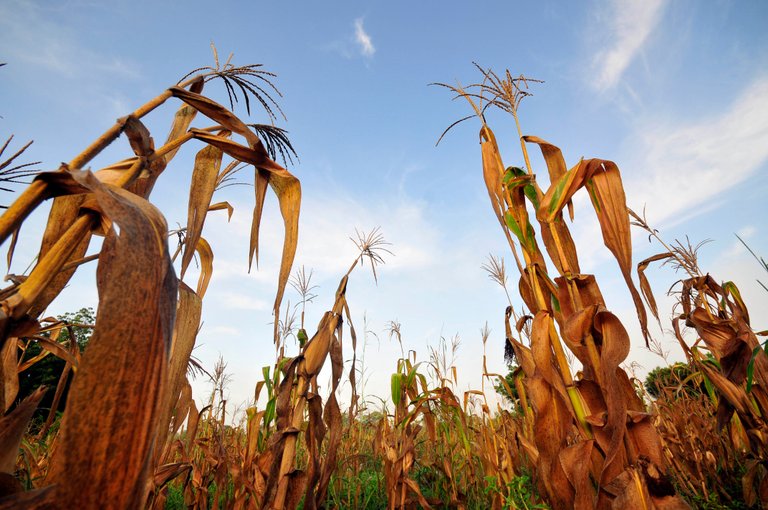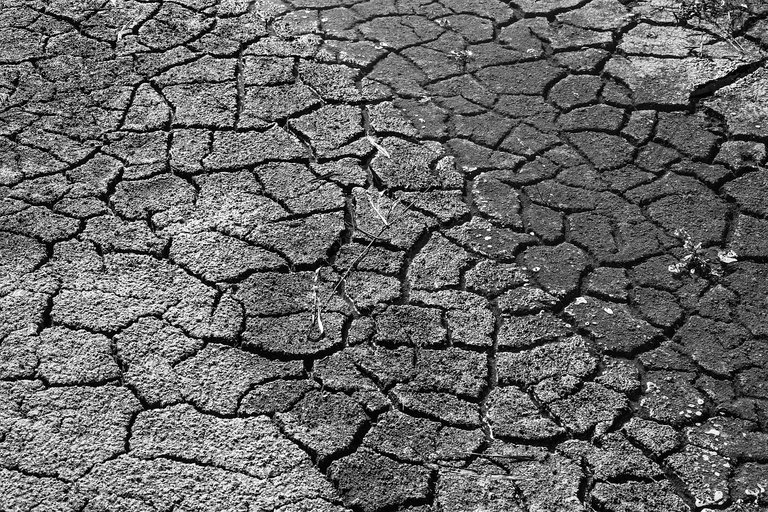I was thinking aloud and I said to myself, if I were ask to draw a graph of human growth within the last 2 centuries, i would surely draw a graph with a spike upwards or exponential growth because in the 2 centuries, a lot of growth has been experienced by humans. This growth is not limited to compound interest, life expectancy, innovation, population, and so on.
Remember I mentioned population growth? I will be discussing this in this post today because it looks like our increased population comes with a problem which is a lack of exponential growth in terms of food. One of the reason for a protest in Nigeria currently is increased price of food which is affected by a lot of things including not enough food to go round.

Image: Wikimedia
This was first noticed in 1798 when Thomas Malthus that food production didn't grow the human population grew but then there was no collapse and this was thanks to the green revolution which is why a lot of people in the world have enough to eat for now. So then you begin to say when this has been solved, what else do we worry our head over again. The answer is simple as there is a bigger elephant in the room. While the world's population isn't growing exponentially rather it is slowing down, we are beginning to get hit by carbon emission, and climate change.
By 2050, our population might have increased by another 2 billion people and if we continue this way, climate change will become worse as it would hit us the hardest. For instance, if we continue to rare cattle for food the way we do in 2050, then we will need 2X of what we need to feed them currently because we would have had 2x the amount of cattle which would be what is needed to feed us and as such we would expect that the amount of greenhouse gasses produced by cattle would increase. That isn't all the problem we will be having because farmers would need to farm 2X what they do currently so they are able to feed the cattle.

Image: Needpix
It isn't like the world hasn't experience a form of starvation before because in the mid-20th century, countries like Mexico, some part of South Asia, and some countries in Africa faced starvation. I wasn't born then so I would not know if it reached my community but history remains vital to know what happened in the past. There were times when people predicted a very large famine that was going to kill millions of people but scientists like Norman Borlaug were able to prevent this occurrence as they were able to grow new variant of crops like rice that were resistant to pests and had larger harvest thereby preventing the famine apocalypse.
Some developed countries are already cultivating GMO plants so they can produce more and resist pest but while a lot of people are raising concerns including its effect on nature, insects are starting to grow resistance to the bacteria toxin in the corn DNA. I read an article that was written on National geographic, and I saw that scientist are trying to use the biology of photosynthesis to help some plants grow where plants like corn use less water as a result of using 4 carbon compared to grains like rice that uses 3 carbons and utilizes more water. So scientist are trying to improve rice to add another carbon to rice so as to allow it grow with less water which would be good considering the rise in heat.
If we continue with our current knowledge of cultivation, we might end up with a famine or starvation as the food available will not be able to feed the world. We need a lot of hands on deck including ideas, technology, farming ideas, and everything we can use.
Reference
https://www.nationalgeographic.com/news/2014/10/141004-agriculture-research-borlaug-food-farming-green-revolution/
https://www.nationalgeographic.com/foodfeatures/green-revolution/
https://medium.com/the-food-issue-weapons-of-reason/what-can-future-farmers-learn-from-norman-borlaug-s-green-revolution-fa0bb198dd22
https://ourworldindata.org/co2-and-other-greenhouse-gas-emissions
https://blog.ucsusa.org/doug-boucher/world-population-growth-exponential
